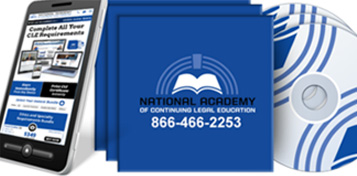Lecturer Bios
Peter J. Wagner, Esq.
Peter Wagner received his undergraduate degree in history from Dartmouth College and his law degree
from New York Law School. Peter is a member of the Nassau County Bar Association, the New York State
Bar Association and the American Bar Association, where he serves as a member of the Financial
Services committee. Peter has participated as an associate member of the American Association of
Residential Mortgage Regulators (AARMR), the Mortgage Bankers' Association of America and National
Home Equity Mortgage Associations' Legal Affairs committees. For over 15 years, Peter has represented
consumers, as well as financial institutions in the mortgage and automotive finance industries, by
providing compliance, legal and business advice, including drafting and implementing policies,
procedures, best practices and government affairs initiatives. Peter has lectured on mortgage financing,
credit scoring and predatory lending for the National Urban League, the Marino School of Continuing
Legal Education, local schools, faith-based organizations and other not-for profit organizations. In his
spare time, Peter is an avid fisherman and soccer coach. He is on the Board of Directors of the Commack
Soccer League.
Adam Gross, Esq.
Mr. Gross concentrates his practice in real estate, mortgage default servicing, foreclosure and related litigation, loan resolution, home retention and title claim resolution. Mr. Gross is a member of the New York State Bar.
William J. Horan, Esq.
Bill Horan received his undergraduate, graduate (MBA), and law degrees from St. John`s University. He is a member of the Nassau County and New York State Bar Associations, and serves as chairman of the paralegal subcommittee of Nassau Community College. For the past 25 years, Bill has represented lenders in legal matters regarding real estate and regulatory and compliance issues. Bill has lectured on real estate and mortgage financing for the Nassau County Bar Association, Suffolk County Bar Association, Rockland County Bar Association, New York County Lawyers Association, Orange County Board of Realtors, National Business Institute, Marino School of Continuing Education, C.W. Post College and Nassau Community College. Bill has been interviewed on several radio shows and television programs, and for the past 20 years, he has hosted his own show, The Secrets of Success, on WHPC 90.3 FM.






